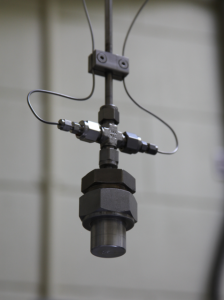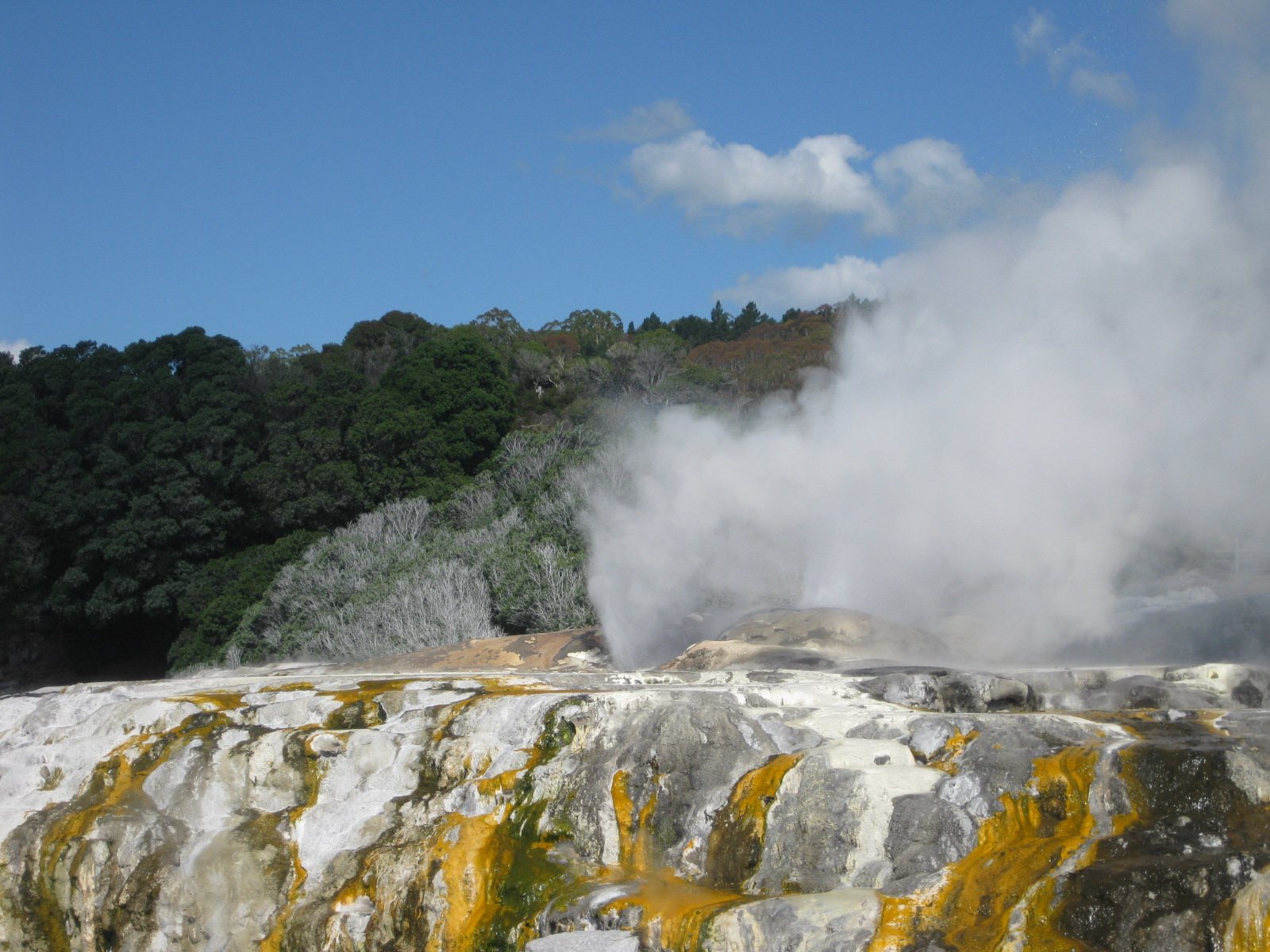Mini-reactor provides inexpensive, rapid turnaround and safe system for industry product development.
A mini hydrothermal reactor has been commissioned by Scion at its Rotorua site as part of a project undertaken with additional funding from the BioResource Processing Alliance (BPA).
The mini-reactor is a small scale, high temperature, high pressure reactor system that can be used for testing the potential of hydrothermal chemical reactions and treatments for transforming low grade waste into high value products. The heart of the system is the fluidised sand bed that rapidly and safely heats the sample. The sand bed in turn is heated and “fluidised” by air at temperatures of up to 400°C forced through the sand.
 The 15 mL stainless steel reactor vessels are inserted into the sand heated from ambient temperature to 240°C, for example, in less than three minutes. The reaction vessels can be pressurised with air, oxygen and nitrogen and investigations using other gases such as hydrogen are planned. Once loaded and pressured, a programmable robotic structure moves the reactor, with pneumatic shaking if desired, to the sand bed then to a cold water quenching bath and back to a workbench. Full automation of the process allows the reactor to be operated remotely, improving the safety of the plant. The small scale nature of the system also reduces the risk to the operator. The rapid cooling and heating that the mini-reactor allows for multiple runs per day, making it ideal for turning around screening trials, for example, quickly and efficiently.
The 15 mL stainless steel reactor vessels are inserted into the sand heated from ambient temperature to 240°C, for example, in less than three minutes. The reaction vessels can be pressurised with air, oxygen and nitrogen and investigations using other gases such as hydrogen are planned. Once loaded and pressured, a programmable robotic structure moves the reactor, with pneumatic shaking if desired, to the sand bed then to a cold water quenching bath and back to a workbench. Full automation of the process allows the reactor to be operated remotely, improving the safety of the plant. The small scale nature of the system also reduces the risk to the operator. The rapid cooling and heating that the mini-reactor allows for multiple runs per day, making it ideal for turning around screening trials, for example, quickly and efficiently.
The mini-reactors are also relatively inexpensive to produce, which means users can investigate a range of materials using corrosive reagents or testing to destruction, with little cost. The cost-effective nature of replacing parts of the plant also reduces the chance of reactor failure from fatigue or corrosion, further improving safety. The mini-reactor was one of the BPA’s earliest projects and it is very exciting for us to be able to offer the mini-reactor, which is economical and has a fast turnaround, for clients who are looking to experiment with thermo-chemical processes involving liquids, or certain hazardous materials.
Scion can offer support and advice on using the mini-reactor and support scale-up work with the larger hydrothermal reactors, also on the Rotorua campus. The mini-reactor has already been put to good use on another BPA project lead by Scion in collaboration with Plant & Food Research and AgResearch. This project involves developing a slow release nitrogenous fertiliser from lignin which is sourced from the pulp and paper industry. Any product will aim to benefit both the forestry and horticultural sectors by both reducing large volumes of lignin and creating a new fertiliser product for industry. Scion scientist Kim McGrouther, who has been working on the lignin project, found the mini-reactor useful for allowing quick preparation for experimenting on small volumes of product and she was pleased that the system ensured a high level of safety – particularly when she was combining ammonia and lignin with oxygen.
This Scion/BPA funded project is an example of how a low value secondary stream that may currently be going to landfill, can be cost-effectively experimented with and potentially made into a high value product that can generate revenue for New Zealand. Waste streams (by their very nature) are generally not streams that organisations want to spend a great deal of money on, so having the ability to minimise costs associated with getting better value out of them is always going to be advantageous– anything that speeds up product development and market entry, whilst getting rid of volumes of waste has got to be a good thing!



Leave a comment